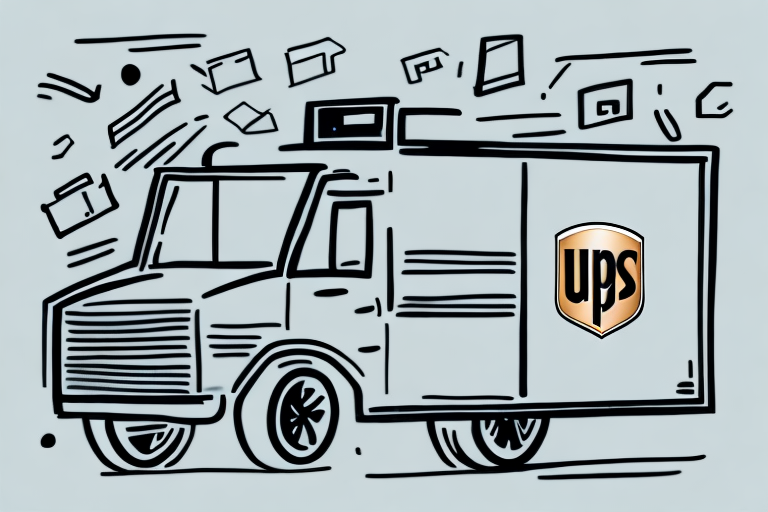Understanding the Benefits of Declared Value UPS Shipping
If you're in the business of shipping goods, selecting the right shipping provider is crucial. One key consideration is the level of protection your shipment will receive. Declared value UPS shipping offers enhanced liability coverage, ensuring your packages are safeguarded against loss or damage. This comprehensive guide explores everything you need to know about UPS shipping, and why declared value options might be the optimal choice for your business.
What is Declared Value UPS Shipping?
Declared value UPS shipping allows you to increase the level of liability UPS assumes for your shipment. By default, UPS's liability for any loss or damage is limited, but with declared value, you can choose to enhance this coverage based on the value of your package.
It's important to note that declared value UPS shipping is not equivalent to insurance. While insurance offers broader protection against various risks, declared value strictly increases UPS's liability for your shipment. The cost associated with declared value shipping is directly tied to the declared value of your package, making accurate valuation essential for proper coverage.
This service is particularly beneficial for businesses or individuals shipping high-value items. By opting for declared value UPS shipping, you gain peace of mind knowing that your package is better protected during transit. However, it's crucial to assess whether the cost of declared value shipping aligns with the value of the items being shipped to determine if it's a worthwhile investment.
How Declared Value UPS Shipping Works
When you choose declared value UPS shipping, you declare the monetary value of your package's contents, up to a maximum of $50,000 per package. UPS then assesses a fee based on this declared value, which varies according to factors such as destination and shipping method.
It's essential to understand that declared value UPS shipping does not provide insurance coverage. Instead, it defines the limit of liability UPS assumes in the event of loss or damage. For additional insurance, you may need to purchase UPS's declared value coverage or opt for third-party insurance providers.
Accurate and honest declaration of your package's value is paramount. Undervaluing can result in insufficient coverage and potential out-of-pocket costs, while overvaluing may lead to unnecessary expenses on fees.
Advantages of Using Declared Value UPS Shipping
Declared value UPS shipping offers several key benefits:
- Enhanced Protection: If your package is lost or damaged during transit, UPS is liable for the full declared value, up to $50,000, providing confidence for shipping high-value items.
- Accurate Pricing: Declaring the value allows UPS to calculate shipping costs based on the required protection level, helping to avoid overpaying for unnecessary coverage.
- Streamlined Shipping Process: Upfront declaration of value can prevent delays and complications related to loss or damage claims, ensuring timely and efficient delivery.
Differences Between Declared Value and Regular UPS Shipping
Standard UPS shipments come with limited liability—typically $100 for domestic packages and $100 for international shipments excluding Canada. Declared value UPS shipping, however, allows you to increase UPS's liability up to $50,000 based on the declared value.
While regular UPS shipping offers basic protection, declared value shipping provides a higher assurance level at an additional cost. This makes declared value shipping suitable for higher-risk or more valuable shipments.
It's critical to declare the accurate value of your package to ensure rightful compensation in case of loss or damage. Over or under-declaring can lead to unnecessary costs or insufficient coverage, respectively.
When to Use Declared Value UPS Shipping
Declared value UPS shipping is ideal in scenarios such as:
- High-Value Items: Electronics, jewelry, and other expensive goods benefit from increased coverage.
- International Shipping: Higher risks associated with global transit make enhanced liability advantageous.
- Fragile or Time-Sensitive Items: Ensures extra care and protection during handling and transit.
Additionally, businesses that frequently ship valuable items may find declared value shipping essential for maintaining customer satisfaction and reducing potential losses.
Calculating the Declared Value of Your Shipment
Accurate calculation of your shipment's declared value is crucial. Consider the following steps:
- Determine the Actual Value: Assess the monetary worth of the contents, including cost, shipping, and taxes.
- Research Item Values: For items like electronics or jewelry, use current market prices to declare accurate values.
- Factor in Additional Costs: Include any extra fees or ancillary costs associated with the shipment.
For international shipments, be aware of additional documentation or fees that may apply based on the declared value. Ensuring precision in valuation helps avoid future disputes and ensures adequate coverage.
Filing a Claim with UPS for Lost or Damaged Shipments
If your declared value UPS shipment is lost or damaged, you can file a claim to receive compensation. The process involves:
- Gather Documentation: Collect the tracking number, declared value, and evidence of the shipment's value, such as receipts or invoices.
- Submit a Claim: Use UPS's official channels to file your claim, providing all necessary documentation.
- UPS Investigation: UPS will investigate the claim and determine compensation based on the declared value.
Be aware of exclusions—certain items like antiques, artwork, and jewelry may not be fully covered under declared value coverage. For such items, purchasing additional insurance is advisable.
Common Misconceptions About Declared Value UPS Shipping
There are several misunderstandings regarding declared value UPS shipping:
- Declared Value Equals Insurance: Declared value increases UPS's liability but does not equate to comprehensive insurance coverage.
- Automatic Coverage Increase: Liability isn't automatically increased; you must explicitly declare the value and opt for the service.
- Higher Declared Value Means Full Coverage: Declaring a higher value increases liability but may not cover all loss scenarios. Understanding the terms is essential.
Factors to Consider Before Choosing Declared Value UPS Shipping
Prior to selecting declared value UPS shipping, evaluate the following:
- Cost vs. Value: Weigh the additional fees against the shipment's value to determine financial viability.
- Destination Regulations: International shipments may be subject to varying laws and restrictions based on declared value.
- Risk Assessment: Consider the likelihood of loss or damage based on the item's nature and shipping journey.
Analyzing these factors helps ensure that declared value shipping aligns with your business's needs and risk management strategies.
Comparing Declared Value UPS Shipping with Other Carrier Options
Declared value shipping isn't exclusive to UPS; other carriers like FedEx and USPS offer similar services. It's essential to compare the following aspects:
- Coverage Limits: Different carriers may offer varying maximum liability caps.
- Fee Structures: Assess how each carrier calculates fees based on declared value.
- Claim Processes: The ease and efficiency of filing claims can differ among carriers.
Refer to comparative resources such as this guide on top shipping carriers for a detailed analysis to determine the best fit for your shipping requirements.
Ways to Save Money on Declared Value UPS Shipments
Shipping a large volume of packages with declared value can be expensive. Consider the following strategies to reduce costs:
- Negotiate Bulk Rates: Work with UPS to secure discounts based on shipping volume.
- Utilize Online Shipping Tools: Take advantage of UPS's online platforms that offer discounted rates for declared value shipping.
- Optimize Packaging: Efficient packaging can reduce both shipping costs and the risk of damage.
- Compare Carrier Rates: Regularly review and compare rates from different carriers to ensure competitive pricing.
Understanding Liability and Insurance Coverage with Declared Value UPS Shipping
Declared value UPS shipping outlines the liability UPS assumes for your package. Key points include:
- Liability Limits: UPS's liability is capped at the declared value, up to $50,000 per package.
- Exclusions: Certain items such as antiques, artwork, and jewelry may not be fully covered, necessitating additional insurance.
- Coverage Scope: Declared value covers loss or damage during transit but does not include post-delivery issues.
For comprehensive protection, especially for high-value or specialized items, consider supplementing declared value with additional insurance policies.
In conclusion, declared value UPS shipping provides essential protection for businesses shipping high-value or international packages. By accurately declaring the value of your shipments, you enhance UPS's liability coverage, ensuring greater security for your goods. However, it's vital to assess the associated costs, understand coverage limitations, and explore supplementary insurance options when necessary. Making informed decisions about shipping options can significantly impact your business's efficiency and customer satisfaction.






















